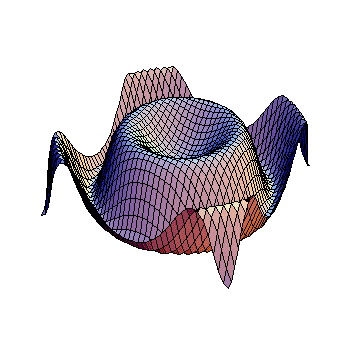How do you find the vertex and the intercepts for f(x) = -x^2 + 2x + 5?
2 Answers
it vertex is maximum at
x-intercepts
y-intercept
Explanation:
since coefficient of
to find x-intercept, plug in
to find y-intercept, plug in
Explanation:
"for the standard form of a parabola " y=ax^2+bx+c
"then " x_(color(red)"vertex")=-b/(2a)
y=-x^2+2x+5" is in this form"
"with " a=-1,b=2" and " c=5
rArrx_(color(red)"vertex")=-2/(-2)=1
"substitute this value into function for y-coordinate"
rArry_(color(red)"vertex")=-(1)^2+(2xx1)+5=6
rArrcolor(magenta)"vertex "=(1,6)
color(blue)" for intercepts"
• " let x = 0, in function for y-intercept"
• " let y = 0, in function for x-intercepts"
x=0toy=0+0+5=5larrcolor(red)" y-intercept"
y=0to-x^2+2x+5=0
"solve using the "color(blue)"quadratic formula"
x=(-2+-sqrt(4+20))/(-2)=(-2+-sqrt24)/-2=(-2+-2sqrt6)/-2
rArrx=1+-sqrt6
rArrx~~3.45,x~~-1.45larrcolor(red)" x-intercepts"
graph{-x^2+2x+5 [-12.65, 12.66, -6.34, 6.3]}

